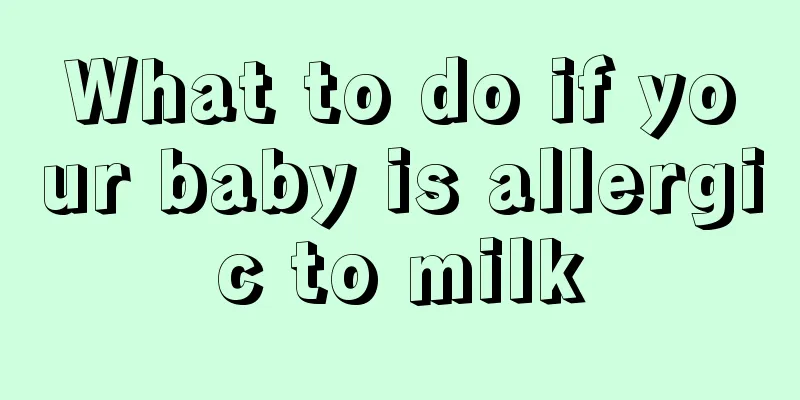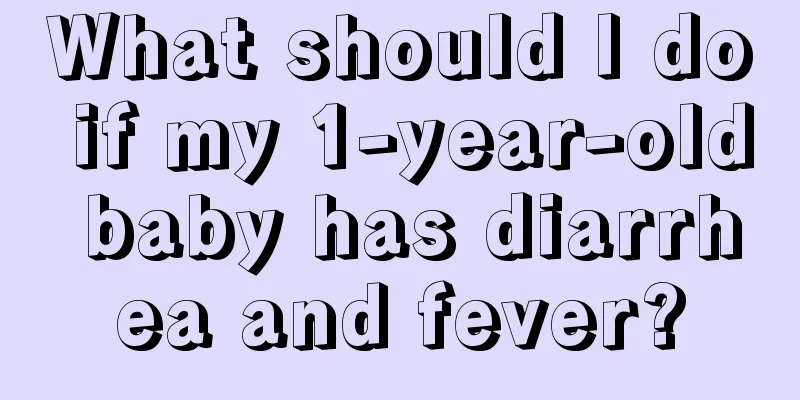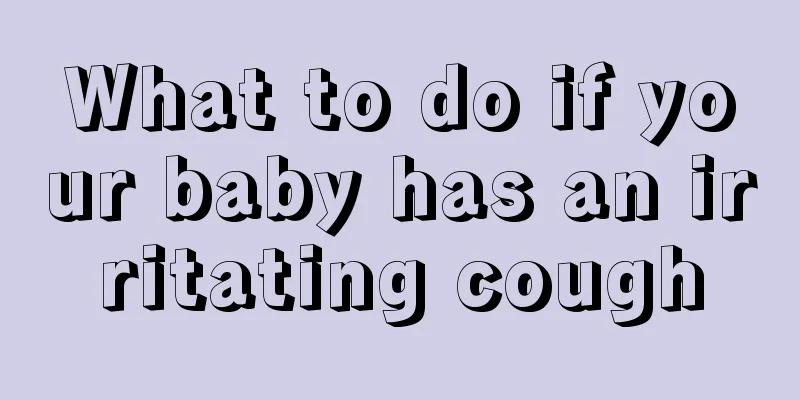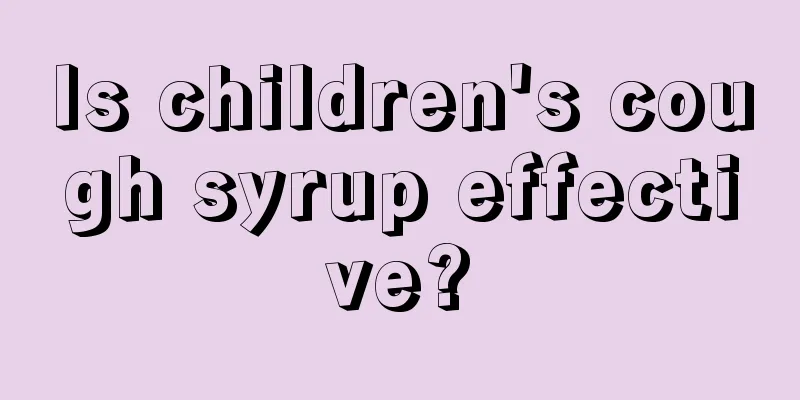What to do if your baby is allergic to milk

|
The birth of a baby brings a lot of joy to the whole family. The whole family is very happy to adapt to the changes that this little life has brought to the family. The baby's growth is the family's most concerned issue. Scientific education and feeding are also issues of concern. What the family least wants to see is the baby having physical abnormalities or getting sick. Many mothers do not have enough breast milk, so they will feed their babies with milk or milk powder. Some babies will be allergic to milk. What should I do if the baby is allergic? Allergies occur when the body's immune system overreacts to naturally harmless substances in the air, water, contact objects, or food. Food allergy is an adverse reaction caused by an inappropriate immune response to food proteins. Infant milk allergy is actually an allergy to the protein in milk, that is, it is caused by the baby's immune system overreacting to milk protein. Cow's milk allergy is the most common food allergy in a baby's first year of life! About 2.5% of babies are allergic to cow's milk. Cow's milk protein is a foreign protein to babies. Some components in cow's milk protein, such as β-lactoglobulin, are highly allergenic and can cause allergies in babies. Moderately hydrolyzed protein is processed by protease hydrolysis process. The purpose of hydrolysis is to break down the macromolecules of milk protein into smaller fragments, greatly reducing the allergenic components of milk protein and making the modified milk protein less allergenic. The protein obtained is hydrolyzed protein. If your baby is allergic to milk, you should adopt a dietary elimination therapy, that is, strictly avoid eating foods containing milk ingredients in the next 3-6 months. Not only can you not drink regular formula milk, you can also not eat foods containing milk, such as cream cakes, bread, salad dressing, bovine colostrum, milk candy, and milk-containing biscuits, until the results of the "exclusion-provocation test" turn negative. Therefore, when choosing food for your baby in the supermarket, you must carefully read the ingredients of the food. Breastfeeding mothers should not drink milk. Although breastfed babies are less likely to develop allergies, they may also develop cow's milk protein allergies. If the baby has a milk allergy, the mother should avoid dairy products in her diet for 4 days. If the baby's allergy symptoms are relieved, the mother should continue to not consume dairy products and take calcium supplements if necessary to avoid calcium deficiency. If your baby has allergic symptoms, such as rash and diarrhea, it cannot be completely determined that it is a milk allergy. It is best to go to the hospital for examination to avoid allergies caused by other conditions, find out the allergens, and receive timely treatment. Drink more water. If the allergy is confirmed to be caused by milk, be careful not to let your baby come into contact with milk-related foods. Some desensitizing milk powder can be given to the baby appropriately, but you also need to observe the baby's condition. |
<<: What to do if your five-month-old baby has bad breath
>>: What is the impact of patent ductus arteriosus on children?
Recommend
What causes arrhythmia in children?
Some parents may encounter the phenomenon of chil...
What is the reason why children sweat a lot in summer?
I believe that parents know their children’s phys...
How to prevent colds in adults and babies
It is indeed very easy for adults to catch a cold...
What are the recipes for babies with zinc deficiency?
It is a common phenomenon that babies lack zinc. ...
Baby twitching in sleep
Sometimes babies experience convulsions in their ...
How to supplement iron deficiency in a two-year-old baby?
In life, if a 2-year-old baby appears pale and li...
What should I do if my baby's white eyes have red bloodshot?
If people stay up late or get angry from looking ...
Is it good or bad for children to use pillows?
A pillow is a kind of bedding that people often u...
How to treat after circumcision surgery in children?
Circumcision is currently the most effective surg...
Eight month old baby constipation
Every change in the baby after birth is watched b...
What to do if your baby moves too much when sleeping at night
Some babies are always restless when they sleep a...
What symptoms does the child have when he comes to see the doctor?
Children are very prone to rashes. If your baby a...
What should I do if I suffer from anorexia during adolescence?
The biggest headache for children with anorexia i...
What is the cause of white spots on children's teeth?
The quality of teeth is a very important matter, ...
What are the early symptoms of cerebral palsy in premature infants?
Every family hopes that their child will have a h...









